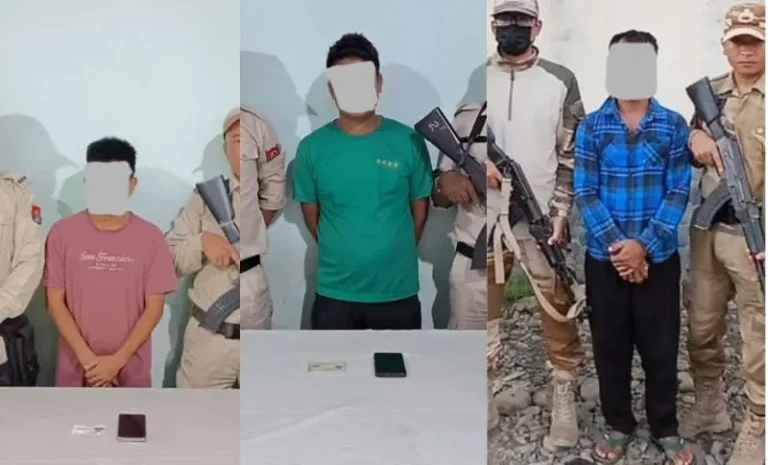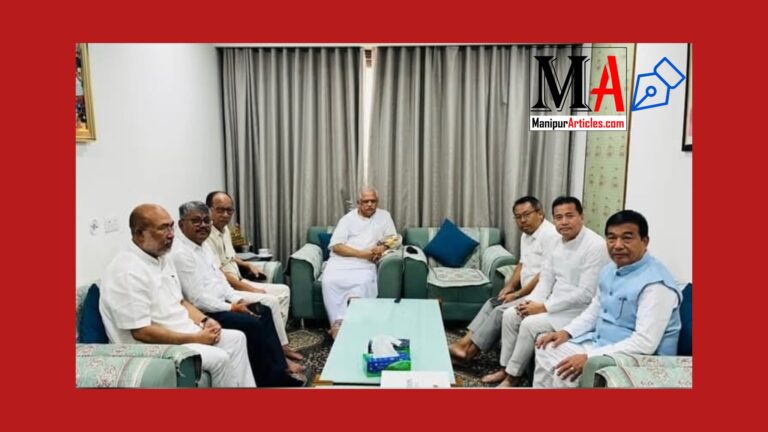MANIPUR: UNITED NAGA COUNCIL ANNOUNCES 15-DAY DEADLINE
Quick News Summary
The United Naga Council (UNC), the apex Naga civil body in Manipur, has given the Centre and the state a 15-day window to respond after its ultimatum over the alleged scrapping of the Free Movement Regime (FMR) and the ongoing construction of border fencing in Naga-inhabited areas expired. The UNC says it will announce the mode of agitation and potentially escalate actions — including the threat of road blockades and wider protests — if its demands for halting fencing and restoring the FMR are not met. The development follows a series of emergency meetings and petitions from Naga organisations to the Governor and the Centre.
Why this matters: Borders, identity and the daily life of hill communities
If you live near a border, the fence isn’t just a line of wire — it’s a change in how your grandparents’ stories meet the present. The UNC’s 15-day deadline is about more than policy language in Delhi; it’s about everyday movements, kinship, markets, and the slow erosion of a regime that allowed communities on both sides of the Indo-Myanmar frontier to cross for family, trade, and ceremonies. This is not only a local flare-up; it’s a flashpoint where national security policy, tribal identity, and people’s livelihoods clash.
The UNC’s recent actions — meetings, memoranda and mobilization
In the weeks preceding the deadline, the UNC called emergency presidential council meetings and coordinated with allied groups — Naga Women Union (NWU), All Naga Students’ Association Manipur (ANSAM), and other bodies — to submit memoranda and press the Governor and the Centre for redress. Delegations even met with the Governor of Manipur to register the grievances formally. Those diplomatic steps show the UNC tried institutional channels before escalating to street action. Yet, when those channels didn’t yield satisfactory clarity or concessions, the UNC pivoted toward an ultimatum and the 15-day countdown.
Final thoughts — bridges, not barbed wire
Borders are not just lines on a map; they are living, breathing human geographies. When policy treats them as mere strategic sinews, it forgets the people whose lives fold across those lines every day. The UNC’s ultimatum and 15-day deadline are part politics, part plea: a demand to be heard before fences become facts.
If governments — central and state — want long-term peace and cooperation in the hills, they need a playbook that builds trust: consult, compensate, create alternatives, and remember that walls rarely solve problems they create. In the end, a bridge built with local consent lasts much longer than a fence erected overnight.
FAQs
Q1: What exactly is the Free Movement Regime (FMR) and why do Naga groups oppose its revision?
A1: The FMR was a practical arrangement allowing people living close to the India-Myanmar border to cross with passes for short durations for family visits, trade, and ceremonies. Naga groups oppose revisions that shrink the permitted zone and add stricter pass systems because such changes affect traditional movements, cross-border kinship ties, and livelihoods.
Q2: Who are the main organisations involved in this protest push?
A2: The United Naga Council (UNC) is the apex body leading the demand, supported by groups like the Naga Women Union (NWU), All Naga Students’ Association Manipur (ANSAM), and Naga People’s Movement for Human Rights — South, among others. These bodies coordinated memoranda and emergency meetings ahead of the ultimatum.
Q3: What concrete actions has the UNC threatened if the government doesn’t respond?
A3: The UNC said it would announce the “mode of agitation” within 15 days, with potential measures including road blockades on national highways, mass rallies, picketing of government offices, and closures of administrative functions in affected districts. These are intended to pressure authorities to engage
Q4: Can border fencing be stopped or paused while talks happen?
A4: In principle, governments can issue temporary halts or moratoria on construction as confidence-building measures. Whether that happens depends on political will and security assessments. The UNC has specifically demanded a stop to fencing and restoration of the FMR as part of any negotiated solution.
Q5: How might this affect supplies and daily life in the short term?
A5: If blockades or prolonged demonstrations occur, supply chains can be disrupted — impacting food, fuel, medicines, and other essentials. Schools and markets may shut, and administrative work can slow. The economic and human costs rise the longer any disruption lasts.




